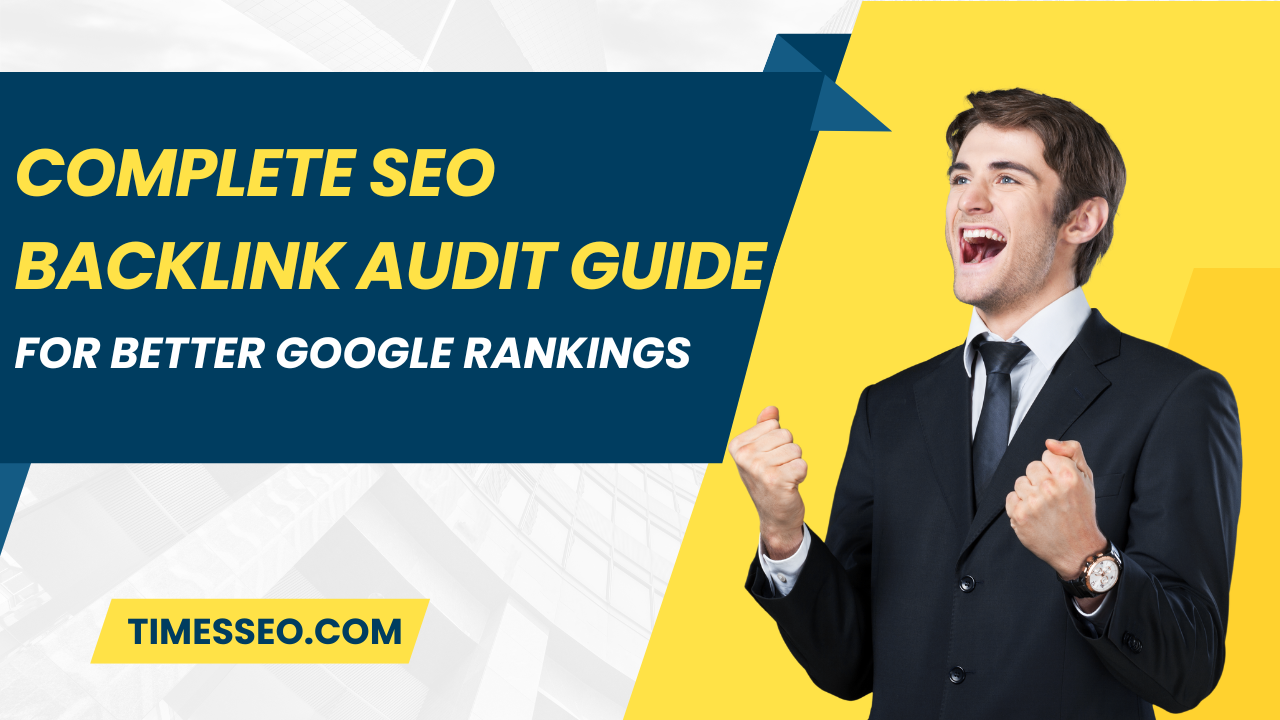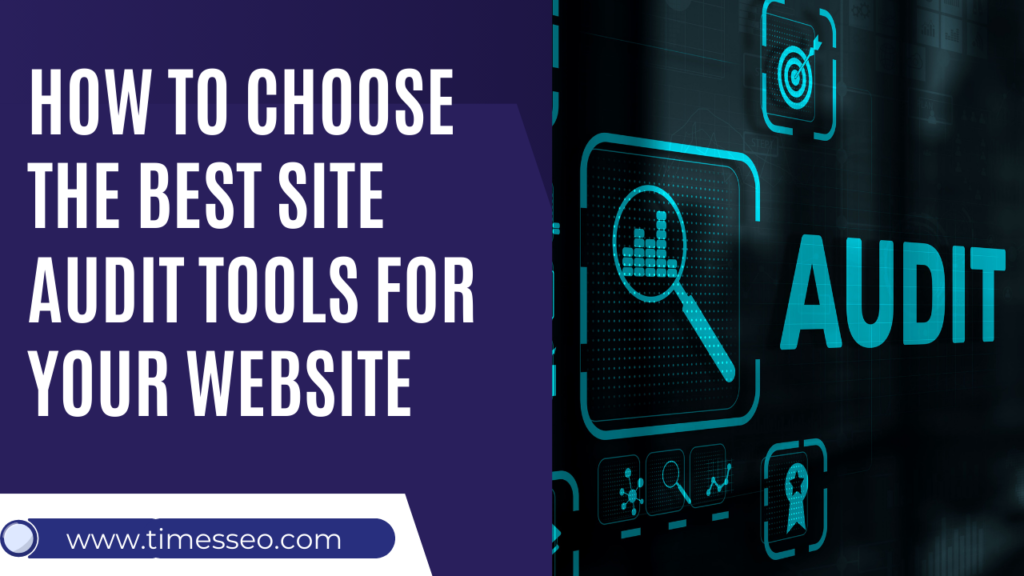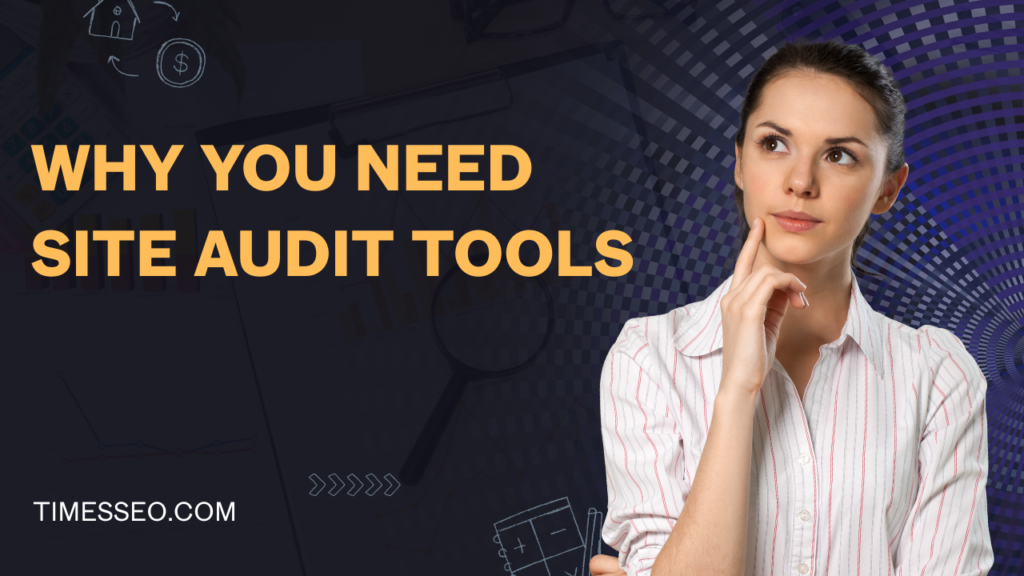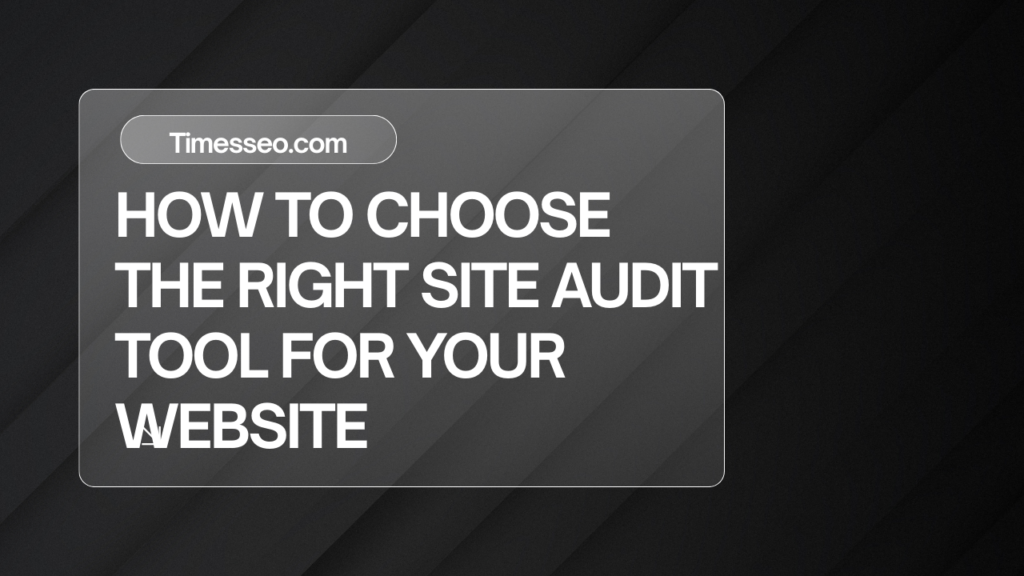
How to Choose the Best Site Audit Tools for Your Website
Learn how to select the finest site audit tools to enhance search engine rankings, resolve technical SEO problems, and improve the functionality of your website. This guide covers key features, top tools, and expert tips to help you make the right choice for your SEO strategy.
Table of Contents
Introduction
Ever wondered why your website isn’t ranking, despite publishing great content? The answer might be hidden in technical issues that search engines can’t ignore. That’s where site audit tools come in. These tools act like your website’s health inspector, helping you spot problems and fix them before they damage your SEO performance.
What Are Site Audit Tools?
Software called site audit tools is made to check and evaluate your website for performance, SEO, and technical problems. They check how well your site follows search engine best practices and highlight areas where you can improve.
Types of site audits include:
- Technical audits (crawl errors, indexing, site structure)
- SEO audits (on-page factors, backlinks, keywords)
- Content audits (duplicate content, thin pages)
- Performance audits (speed, mobile optimization, Core Web Vitals)
Why You Need Site Audit Tools
Site Audit Tools: What is it?
Think of your website as a car. Without regular maintenance, it’ll eventually break down. Site audit tools provide that maintenance by:
- Catching technical errors early
- Improving user experience and site speed
- Boosting SEO rankings and visibility
Important Qualities of Site Auditing Tools
Not all audit tools are created equal. The best ones should offer:
- Crawlability and indexing reports
- On-page SEO checks (meta tags, headers, keyword usage)
- Mobile optimization analysis
- Page speed and Core Web Vitals metrics
- Link analysis (both internal and external)
- Security checks for SSL/HTTPS
- Easy-to-read reports
How to Choose the Right Site Audit Tool for Your Website
When picking a tool, consider:
- Website size: A large e-commerce site may need DeepCrawl, while a small blog might thrive with Google Search Console.
- Goals: Are you focusing on SEO, content, or speed?
- Ease of use: Some tools are beginner-friendly, others more advanced.
- Integrations: Tools like SEMrush and Ahrefs connect with analytics, making data more actionable.
- Budget: Free tools work for starters, but growing businesses often need paid solutions.
Top Site Audit Tools in 2025
Here are the most popular and effective tools today:
- Ahrefs Site Audit – Comprehensive and powerful.
- SEMrush Site Audit: Excellent for comprehensive SEO initiatives.
- Screaming Frog SEO Spider – Perfect for deep crawls.
- Google Search Console – Free and beginner-friendly.
- Moz Pro Site Crawl – Strong reporting features.
- Sitebulb – Visual and detailed reporting.
- DeepCrawl – Ideal for enterprise-level websites.
Comparing Paid vs Free Site Audit Tools
Free tools: Great for small sites or beginners (e.g., Google Search Console).
Paid tools: Offer advanced features like competitor insights, reporting, and automation.
Make a decision depending on your long-term objectives and current stage.
Step-by-Step Guide: Running Your First Site Audit
- Install or sign up for a tool.
- Set up your website crawl.
- Let the tool scan your site.
- Review the generated report.
- Fix issues starting with the most critical.
How Often Should You Run a Site Audit?
Common Issues Found During Site Audits
- Broken links (404 errors)
- Redirect chains
- Duplicate or missing meta tags
- Slow-loading pages
- Mobile usability issues
The Role of Site Audit Tools in Ongoing SEO Strategy
SEO isn’t a one-time effort—it’s ongoing. Site audit tools help you monitor progress, track improvements, and adapt to algorithm changes.
Mistakes to Avoid When Choosing a Site Audit Tool
- Choosing only based on price
- Ignoring scalability for future growth
- Not considering reporting and export features
Expert Tips for Getting the Most Out of Site Audit Tools
- Always prioritize fixes with the biggest SEO impact
- Use more than one tool for accurate insights
- Automate audits to save time
Future of Site Audit Tools
The next wave of site audit tools will use AI to predict SEO outcomes, automate fixes, and integrate more deeply with business analytics.
Conclusion
Choosing the right site audit tool is like choosing the right doctor for your website—it makes all the difference. The best tools don’t just highlight problems; they guide you toward long-term SEO success. Don’t wait until your site performance drops—start auditing today.
Frequently Asked Questions
Google Search Console is the most reliable free tool, perfect for beginners.
Most tools only identify issues—you’ll need to fix them manually or with plugins.
Anywhere from a few minutes to several hours, depending on site size.
If you’re serious about scaling SEO, yes. Paid tools provide deeper insights.
Yes, many highlight duplicate content, missing keywords, and weak pages.
Table of Contents
Popular Posts
-
 Affordable Technical SEO Audit for Small Business: A Complete Guide26 Jun 2025 Blog
Affordable Technical SEO Audit for Small Business: A Complete Guide26 Jun 2025 Blog -
 How to Get an Affordable Technical SEO Audit for Small Business27 Jun 2025 Blog
How to Get an Affordable Technical SEO Audit for Small Business27 Jun 2025 Blog -
 The Ultimate Local SEO Audit Checklist for Startups28 Jun 2025 Blog
The Ultimate Local SEO Audit Checklist for Startups28 Jun 2025 Blog -
 Local SEO Audit Checklist for Startups: A Beginner’s Guide28 Jun 2025 Blog
Local SEO Audit Checklist for Startups: A Beginner’s Guide28 Jun 2025 Blog -
 Top On-Page SEO Audit Steps for Service Websites Every Business Should Know29 Jun 2025 Blog
Top On-Page SEO Audit Steps for Service Websites Every Business Should Know29 Jun 2025 Blog -
 Technical SEO for WordPress: The Ultimate Beginner’s Guide01 Jul 2025 Blog
Technical SEO for WordPress: The Ultimate Beginner’s Guide01 Jul 2025 Blog -
 The Impact of On-Page SEO Audit Steps for Service Websites on UX01 Jul 2025 Blog
The Impact of On-Page SEO Audit Steps for Service Websites on UX01 Jul 2025 Blog -
 Technical Mobile SEO Audit Tips for Developers02 Jul 2025 Blog
Technical Mobile SEO Audit Tips for Developers02 Jul 2025 Blog -
 Complete SEO Backlink Audit Guide for Better Google Rankings03 Jul 2025 Blog
Complete SEO Backlink Audit Guide for Better Google Rankings03 Jul 2025 Blog -
 Boost Your Rankings with Technical SEO for WordPress01 Jul 2025 Blog
Boost Your Rankings with Technical SEO for WordPress01 Jul 2025 Blog







